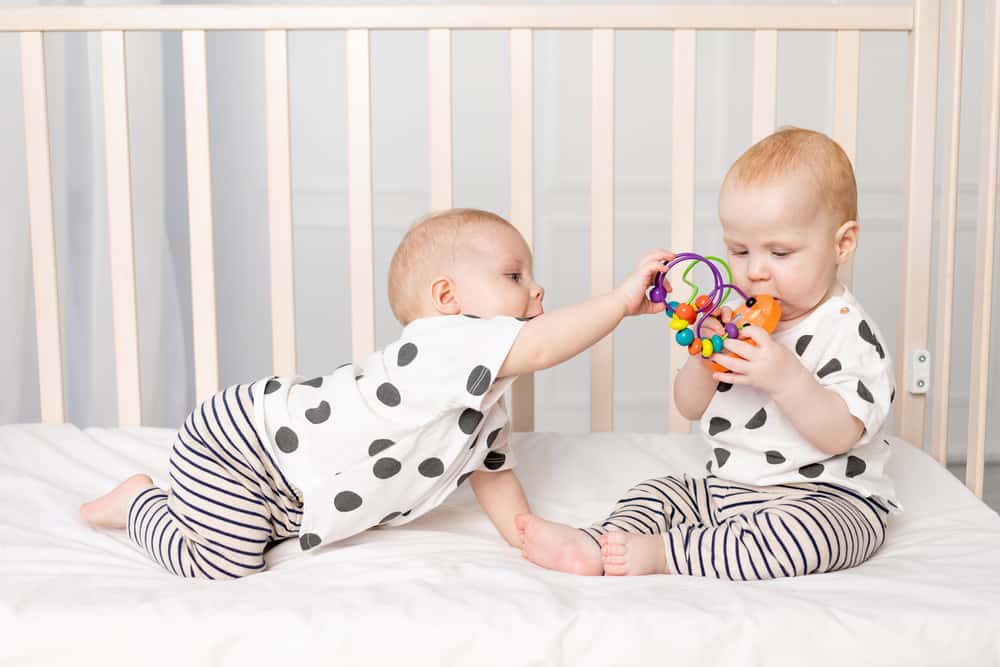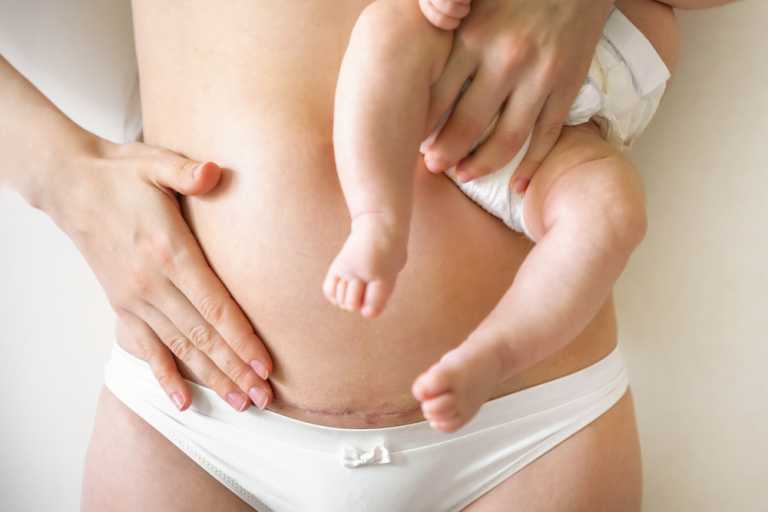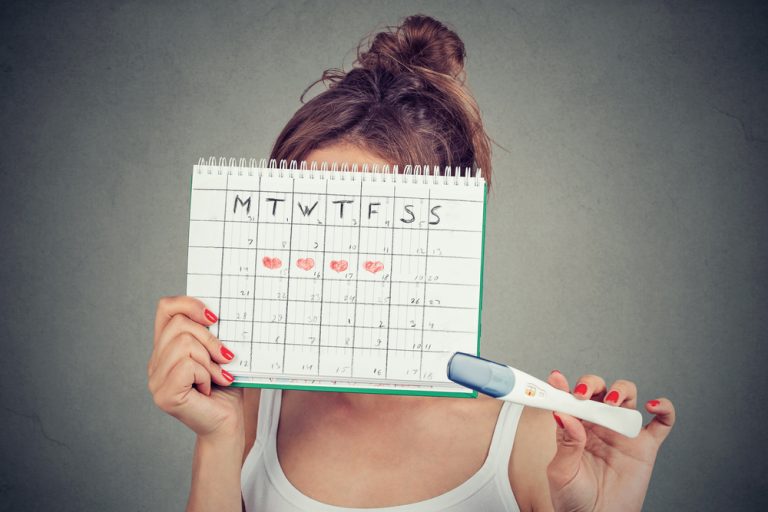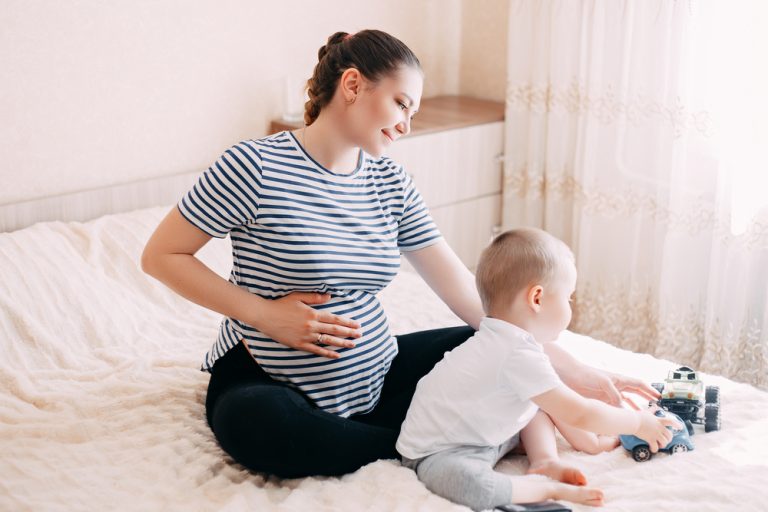Experiencing nausea, fatigue, sore breasts, and an expanding belly, but your pregnancy test is negative? The chances of it being wrong are less than 1%, but it is possible.
Rarely, twins can cause a false negative pregnancy test. As can testing too early, diluted pee, and several other factors.
Here’s everything you need to know about detecting twins and why your test might not have spotted your pregnancy.
Why Do Twins Cause False Negative Tests?
When an egg implants into your uterus, your body starts producing a hormone called human chorionic gonadotropin (hCG).
At-home pregnancy tests use antibodies that bind to the hCG and create a little sandwich, antibody-hCG-antibody.
The problem with twin or triplet pregnancies is that your hCG levels will be much higher. This means the antibodies won’t be able to reach each other and form a sandwich because there’s so much hCG blocking the way.
It’s like trying to make a sandwich, and someone keeps throwing in more fillings before you can put a slice of bread on top. This is called the high-dose hook effect and can give a false-negative result.
Can an At-Home Pregnancy Test Detect Twins?
This doesn’t mean that at-home kits can’t detect twins. In fact, twins and triplets often show up much sooner due to the heightened levels of hCG.
So, don’t rule out twins just because you’ve had a positive pregnancy test result.
Early signs you’re having twins include:
- A dark positive line on a urine test days before your period is due.
- Your bump shows early.
- Extreme nausea.
- Severe morning sickness or hyperemesis gravidarum.
- Intense exhaustion and fatigue.
- Very tender breasts.
- Frequent urination.
- Higher resting heart rate.
- Simply feeling like you’re carrying twins.
How Can You Test for a Twin Pregnancy?
So, if you can’t believe the results of peeing on a stick, how can you confirm a twin pregnancy? Frustratingly, the only surefire method is an ultrasound, so you won’t be able to find out at home.
The good news is that, as ultrasounds have improved, your doctor may be able to confirm your pregnancy as early as 6 to 7 weeks into it. However, the earlier your scan, the more room there is for uncertainty and potential worry. So wait as long as you can. 12 weeks is ideal.
What Else Can Cause a False Negative Test?
The chance of getting a false negative is less than 1%, but it does happen. Aside from twins, here’s what else can cause it:
Testing Too Early
More and more brands claim they can detect a pregnancy before you’ve missed your period. While this is possible, the accuracy is much lower. So, it’s best to wait until the day of your missed period to test.
Your Urine Is Too Diluted
If your urine is significantly diluted, the hCG concentrations will be lower and may not show up. This usually happens if you drink a lot to make yourself pee. To avoid this, always use your first pee of the day.
You’ve Not Used the Kit Properly
Reading your result too soon or late can result in a false negative. Always read the instructions, as wait times vary between brands.
You’ve Misread the Result
Every brand of analog test is different. Some give two lines, others a cross, and some make you figure out which line is darker between the two. All of these can give room for error, particularly if you’re frequently switching brands. To avoid this uncertainty, opt for a digital kit.
Your Test Has Expired
You may not know this, but pregnancy tests can expire, and using one that’s out-of-date may result in a false negative. Always check the expiration date before trusting the result.
Your Test Is Defective
It’s incredibly unlikely, but your test may be defective. If you’re having symptoms, there’s no harm in trying it again.
Ectopic Pregnancy
This is where the egg implants in your fallopian tube rather than your uterus. It’s a severe condition that presents with extreme abdominal pain and missed periods. If you suspect an ectopic pregnancy, call your healthcare provider immediately.
You Are Very Far Along in Your Pregnancy
Your hCG level peaks at around 10 weeks and continues to fall until you give birth. This means that using a urine test in late pregnancy can give a false negative.
What to Do if You’re Convinced You’re Pregnant but Have Had a Negative Test?
See your doctor if you’re experiencing pregnancy symptoms but getting negative urine results. They can run a blood test or ultrasound to see what’s happening.
Even if you’re not pregnant, it’s a good idea to check out what else might be causing your symptoms.
Why Might You Have a Negative Pregnancy Test With No Period?
A missed period can be a huge source of excitement when you’re trying for a baby. Unfortunately, though, it doesn’t always mean you are pregnant. Here are some other reasons why your period might be late:
Late or Missed Ovulation
It’s not unusual for women to occasionally experience a delayed or missed ovulation, resulting in a late or missed period. However, if it happens regularly, you should consult your doctor to identify the underlying cause.
Medications
Many medications, including antianxiety and anti-depression meds, can disrupt your menstrual cycle. Check the side effects of anything you take to see if that’s the cause.
Stress
If you are under stress, this can affect the part of your brain that controls your ovaries and hormones. This can result in a hormonal imbalance and delay your period. Try exercise, meditation, and mindfulness practices to address it, or speak to your healthcare provider.
Weight
Being overweight or underweight can interfere with your hormones and, therefore, the regularity of your periods.
Polycystic Ovary Syndrome and Related Conditions
Some conditions, like polycystic ovary syndrome, can cause irregular or missed periods.
Perimenopause
If you are in your late 30s or early 40s, a missed period could be one of the first signs of perimenopause. Other symptoms include mood changes, hot flashes, and night sweats.
FAQs
Can Twins Cause Low hCG Levels?
No, twins cause your hCG levels to be between 30 and 50% higher than in a singleton pregnancy.
Do Twins Take Longer to Show on a Pregnancy Test?
No, twins can actually be detected earlier than singleton pregnancies because your hCG levels rise faster. However, if you miss the window and wait until your hCG level is too high, you might get a false negative result.
Are Twin Pregnancy Tests Darker?
Twin pregnancies can cause very dark lines on urine strips early on. However, as the high-dose hook effect kicks in, the line may lighten a few weeks after your missed period.




